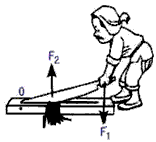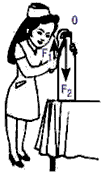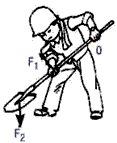Some years ago, writing in my diary used to be a usual activity.I would return from school and spend the expected half hour recording the day's events, feelings, and impressions in my little blue diary.I did not really need to express my emotions by way of words, but I gained a certain satisfaction from seeing my experiences forever recorded on paper.After all, isn't accumulating memories a way of preserving the past?
When I was thirteen years old, I went on a long journey on foot in a great valley, well-equipped with pens, a diary, and a camera.During the trip, I was busy recording every incident, name and place I came across.I felt proud to be spending my time productively, dutifully preserving for future generations a detailed description of my travels.On my last night there, I wandered out of my tent, diary in hand.The sky was clear and lit by the glare of the moon, and the walls of the valley looked threatening behind their screen of shadows.I automatically took out my pen...
At that point, I understood that nothing I wrote could ever match or replace the few seconds I allowed myself to experience the dramatic beauty of the valley.All I remembered of the previous few days were the dull characterizations I had set down in my diary.
Now, I only write in my diary when I need to write down a special thought or feeling.I still love to record ideas and quotations that strike me in books, or observations that are particularly meaningful.I take pictures, but not very often—only of objects I find really beautiful.I'm no longer blindly satisfied with having something to remember when I grow old.I realize that life will simply pass me by if I stay behind the camera, busy preserving the present so as to live it in the future.
I don't want to wake up one day and have nothing but a pile of pictures and notes.Maybe I won't have as many exact representations of people and places; maybe I'll forget certain facts, but at least the experiences will always remain inside me.I don't live to make memories—I just live, and the memories form themselves.
小题1:Before the age of thirteen, the author regarded keeping a diary as a way of________.
A.observing her school routine
B.expressing her satisfaction
C.impressing her classmates
D.preserving her history小题2:What caused a change in the author's understanding of keeping a diary?
A.A dull night on the journey.
B.The beauty of the great valley.
C.A striking quotation from a book.
D.Her concerns for future generations.小题3:What does the author put in her diary now?
A.Notes and beautiful pictures.
B.Special thoughts and feelings.
C.Detailed accounts of daily activities.
D.Descriptions of unforgettable events.小题4:The author comes to realize that to live a meaningful life is________.
A.to experience it
B.to live the present in the future
C.to make memories
D.to give accurate representations of it







